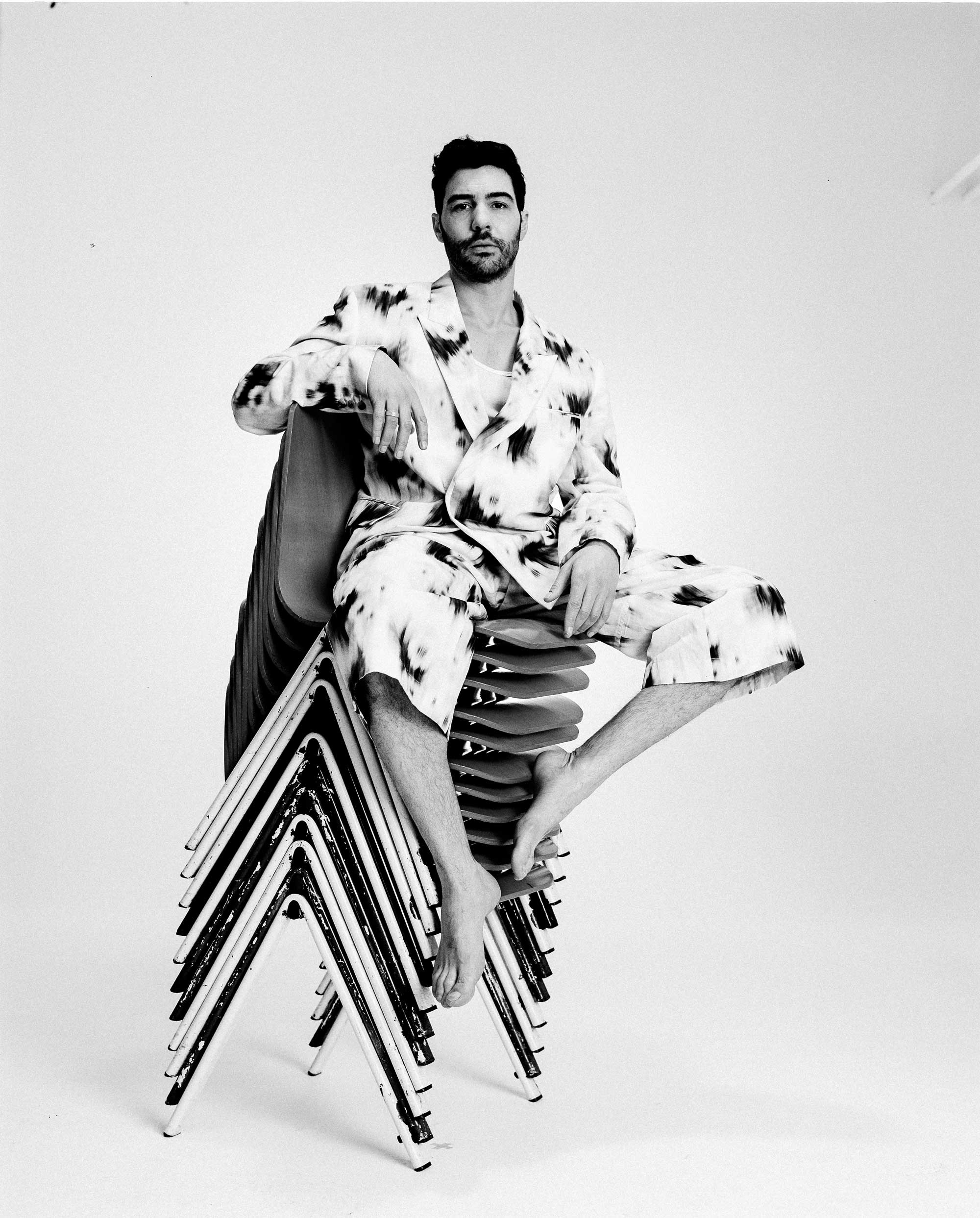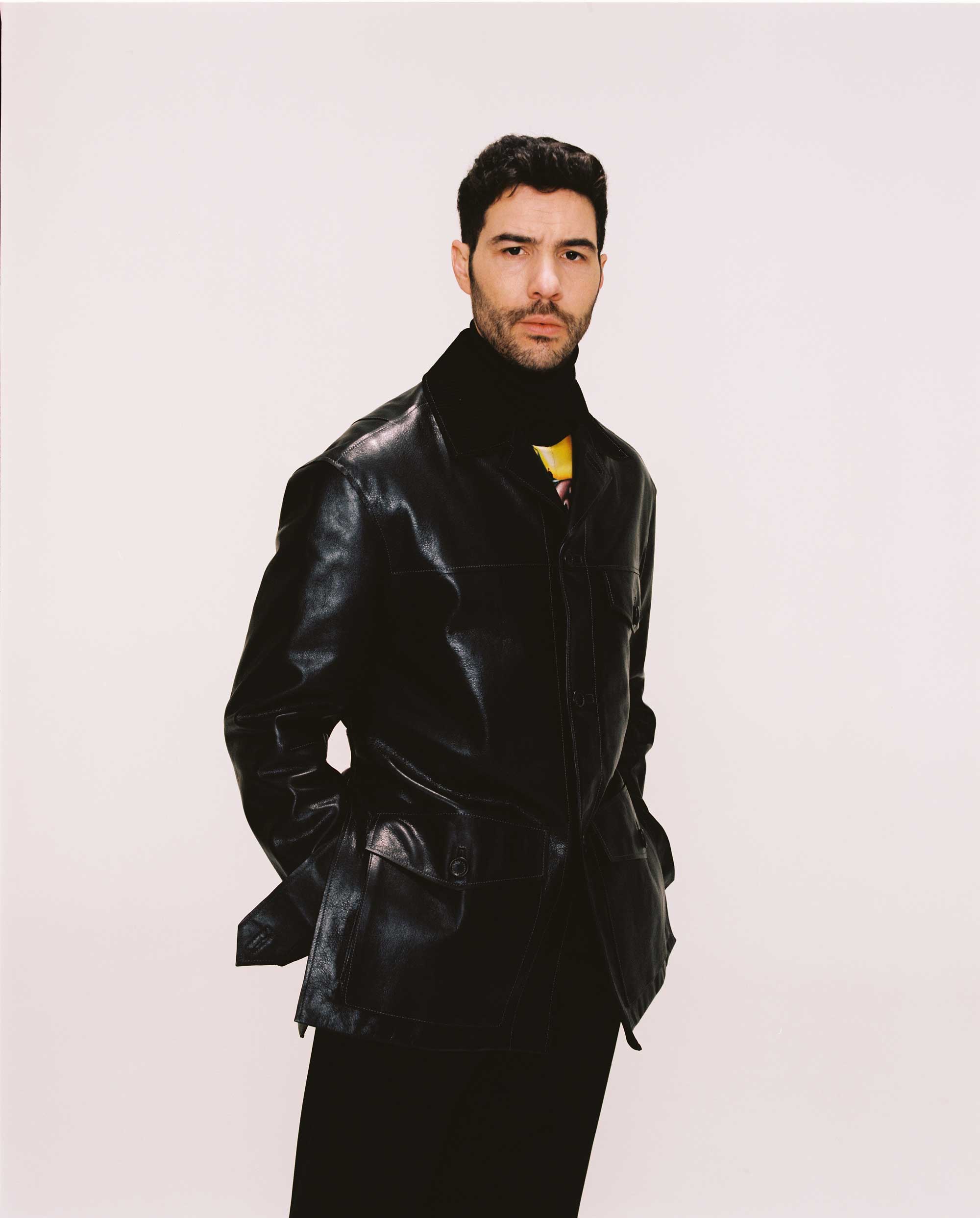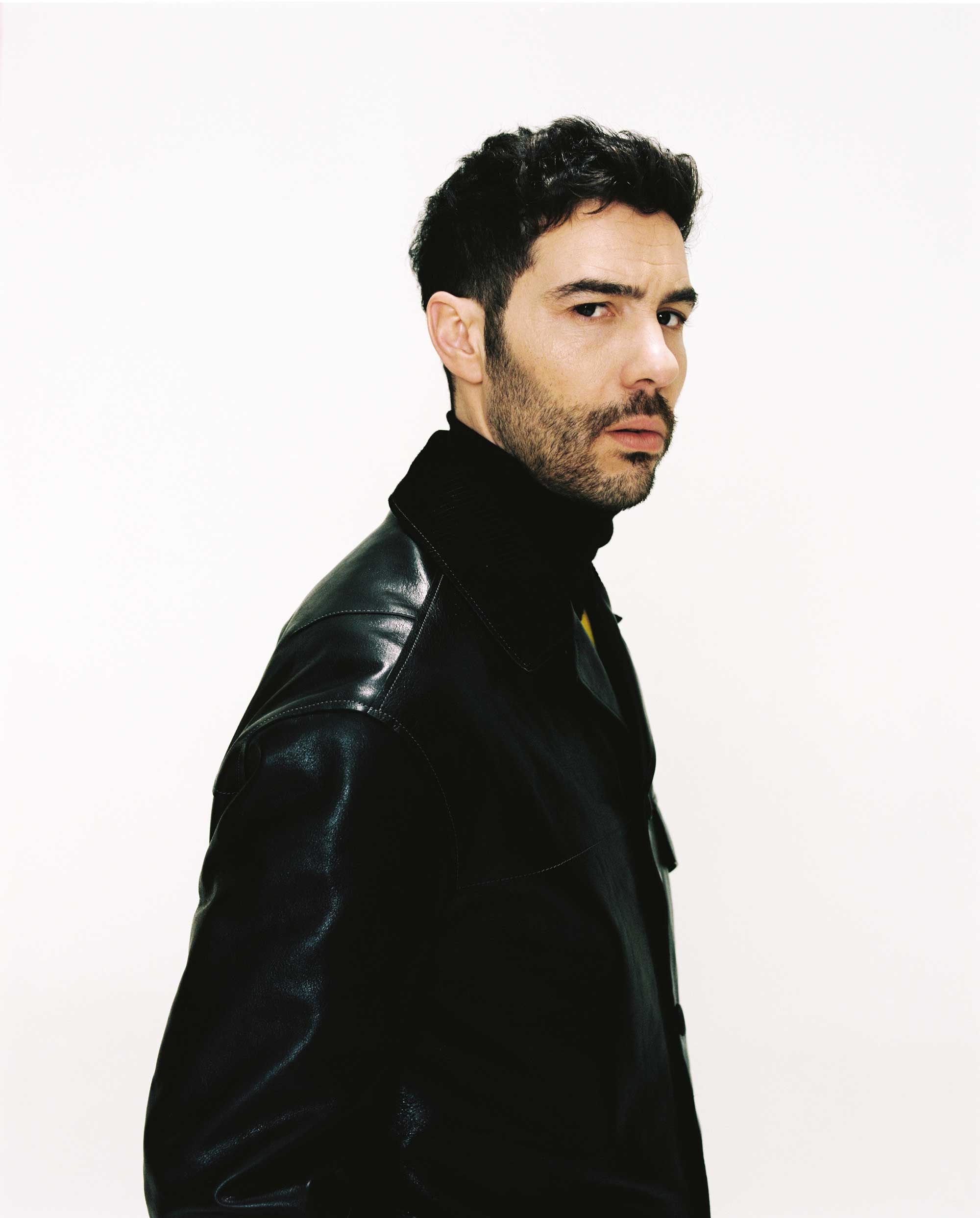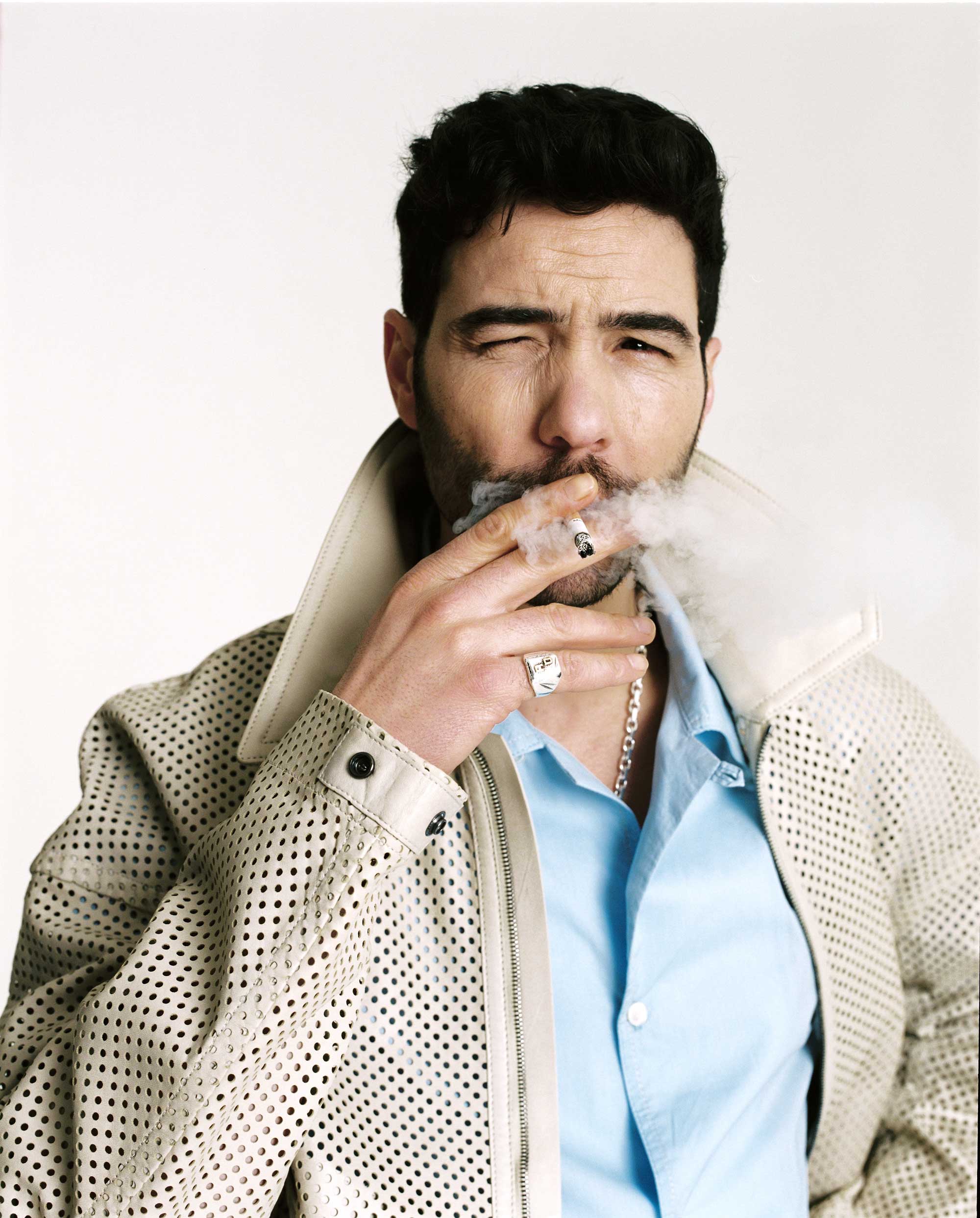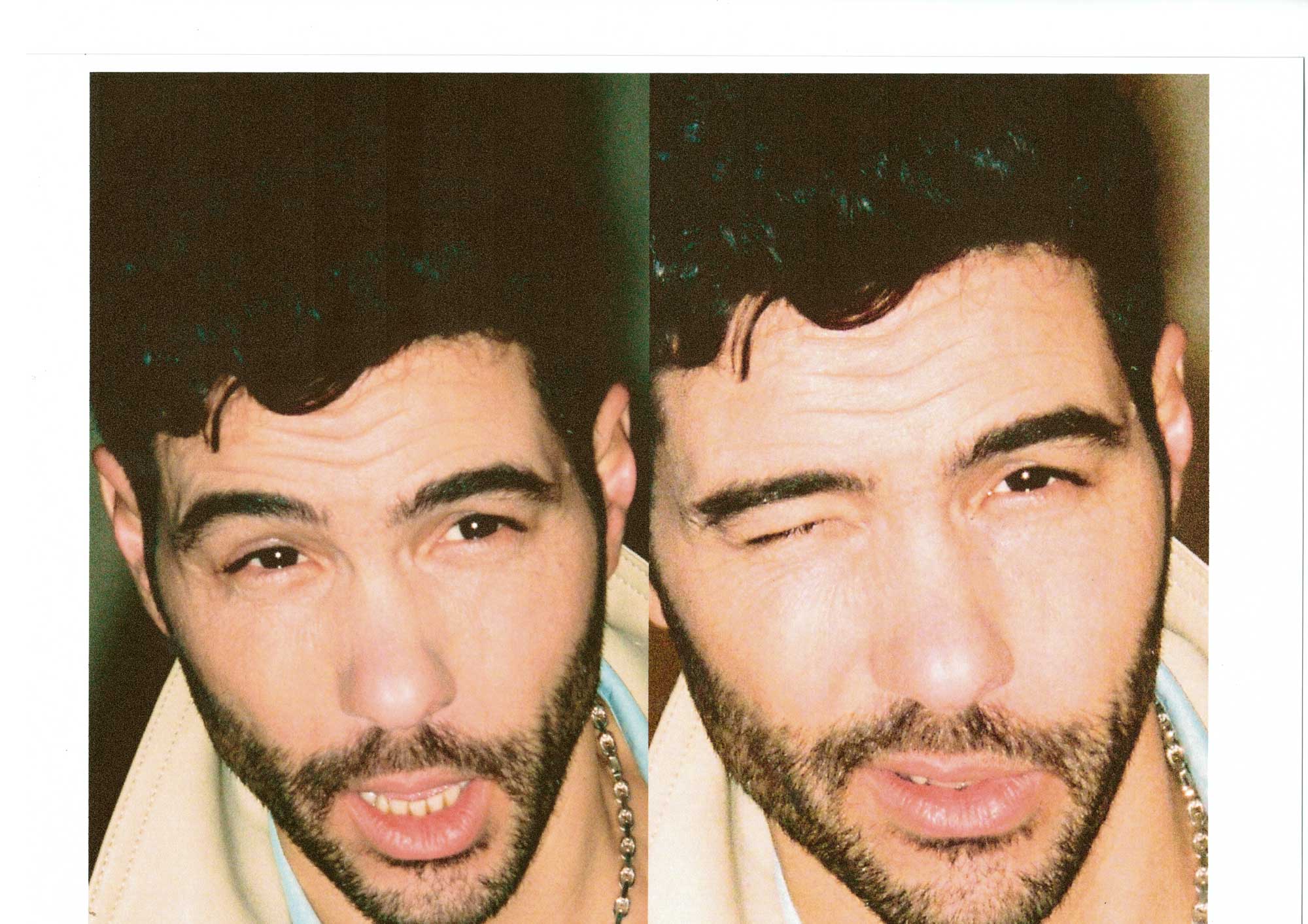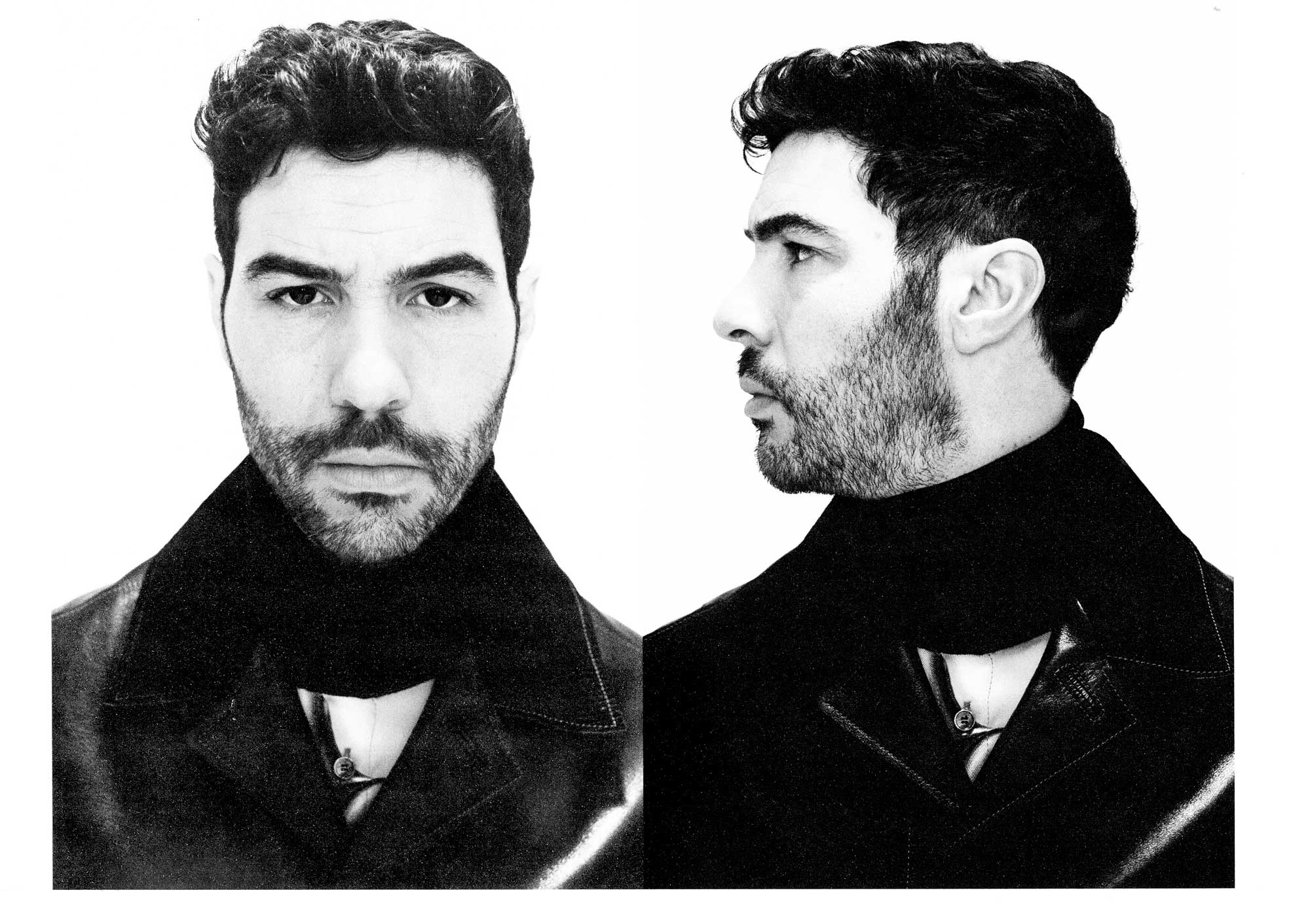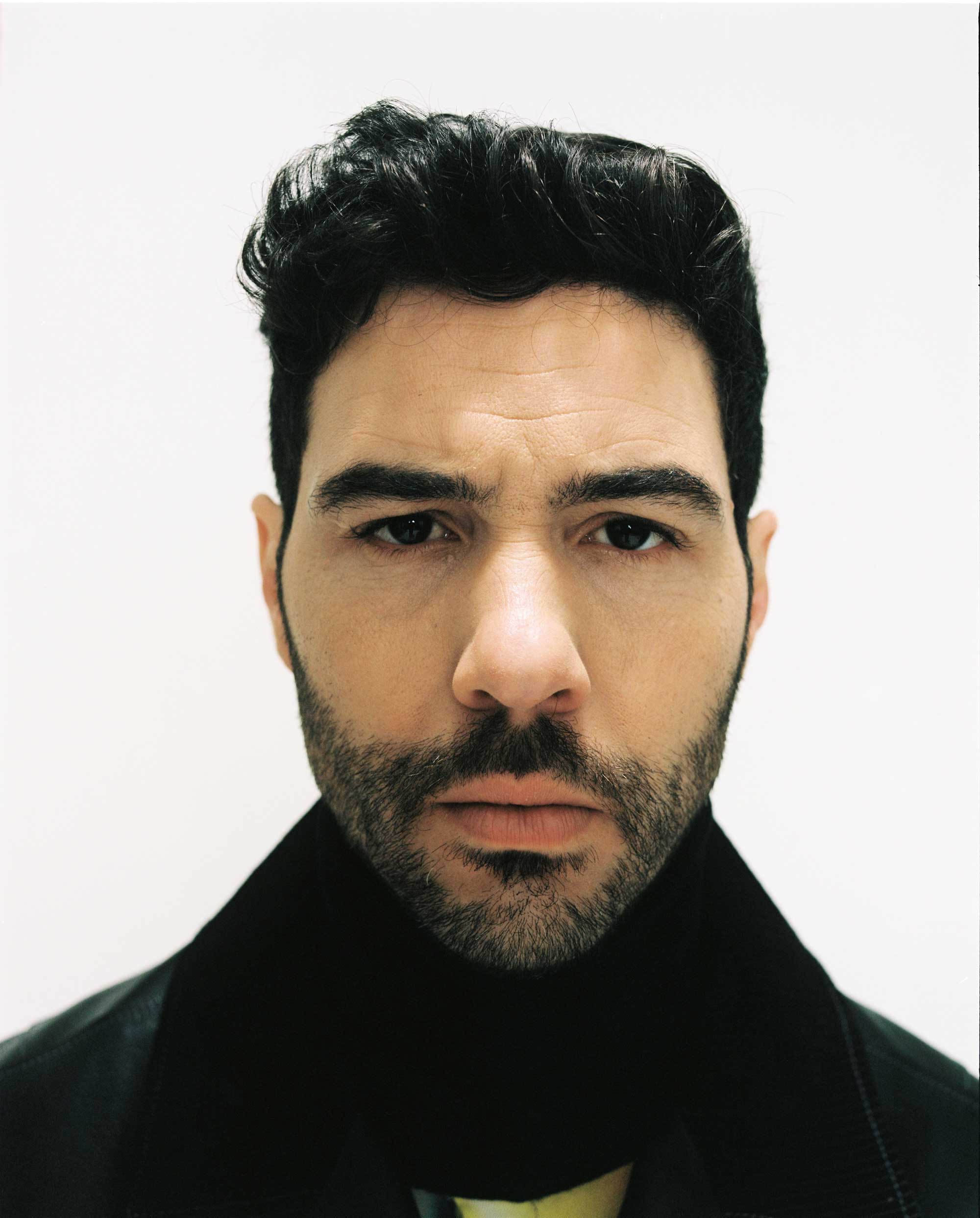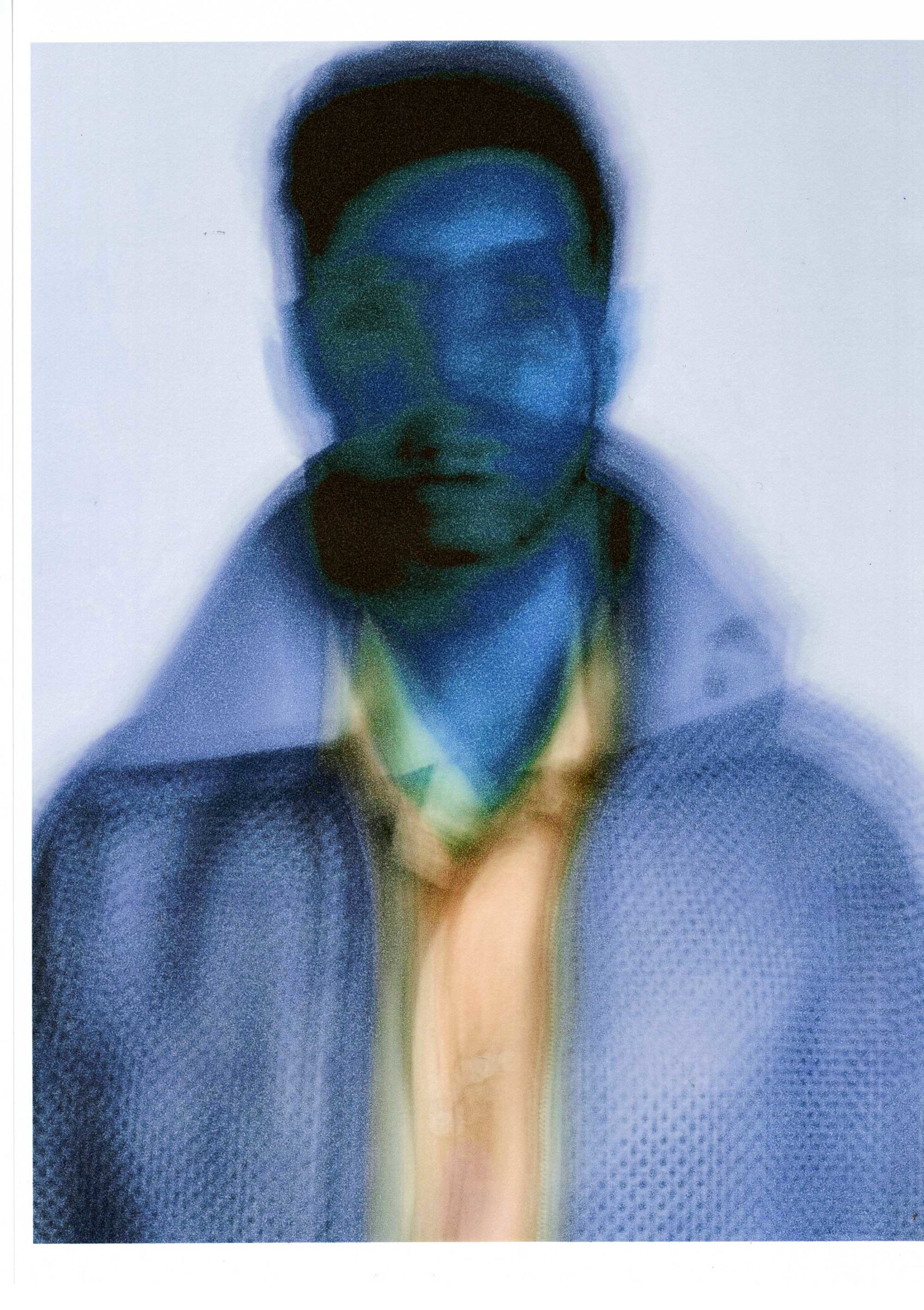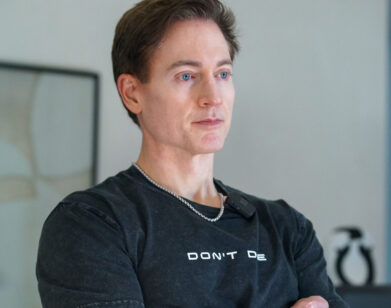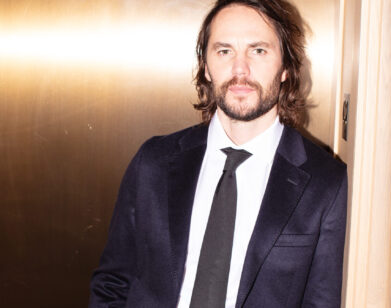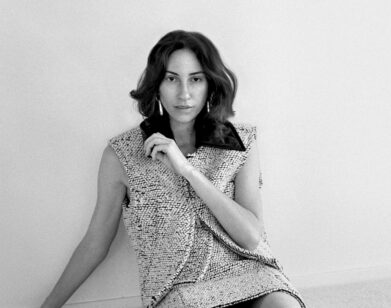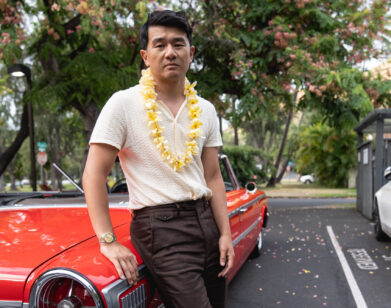LEADING MAN
Tahar Rahim Tells Carey Mulligan Why He Returned to Hollywood
In 2009, Tahar Rahim was given a chance that every young actor dreams of. The French gangster saga A Prophet, which featured Rahim, then 28, in his first starring role, was a global hit and earned him a César Award for Best Actor. His portrayal of an impoverished Muslim prisoner who rises to become a crime lord was a revelation, the announcement of a major talent. Naturally, Hollywood came calling, but after several appearances in Eglish-language films such as the historical epic The Eagle, Rahim retreated back to his native France, overwhelmed by performing in a foreign language and disinterested in the types of parts Hollywood typically offers to actors of Arab descent. After honing his craft under an array of international directors, Rahim, now fluent in English, made his reintroduction to American audiences in 2018 as an FBI agent hunting Al-Qaeda in the Hulu limited series The Looming Tower, and as Judas opposite Joaquin Phoenix and Rooney Mara in the religious biopic Mary Magdalene.
Rahim’s return to English-language acting culminated earlier this year with his performance opposite Jodie Foster in The Mauritanian, which tells the true story of Mohamedou Ould Salahi, a suspected 9/11 terrorist who was wrongly imprisoned at Guantanamo Bay for six years. Rahim’s performance, a showcase of righteous intensity and natural empathy, earned him his first Golden Globe nomination. Which is why audiences are in for a shock when, this spring, he’ll star in Netflix’s The Serpent as the real-life murderer and conman Charles Sobhraj, who, in the 1970s, terrorized Western tourists on Southeast Asia’s so-called “Hippie Trail.” As he tells the two-time Oscar-nominated actor Carey Mulligan, to get inside the mind of a killer, he had to reach back to his own beginnings. —BEN BARNA
———
TAHAR RAHIM: Hey, Carey. It’s been a while.
CAREY MULLIGAN: I know. I just googled us because I was like, “When was the last time I saw you?” There’s a photo of us at the BAFTAs when A Prophet won Best Foreign Film. We watched The Mauritanian on Friday night and, oh, man, you were extraordinary in it.
RAHIM: Thank you.
MULLIGAN: When did you make it?
RAHIM: Right before the pandemic, in South Africa. I shot for four weeks, then had to go back to Thailand.
MULLIGAN: To work on The Serpent?
RAHIM: Yeah. I was shooting The Serpent, then we had to stop and I had to move from The Serpent to The Mauritanian, and then I had to go back to Thailand, and then COVID happened.
MULLIGAN: Did you go back for reshoots?
RAHIM: No, we had to finish. We had some issues shooting—weather, things like that. Some weird things happened as well.
MULLIGAN: Like what?
RAHIM: The Thai people would come on set to pray every morning because they thought that Charles’s victims, their spirits, came back to haunt us.
MULLIGAN: I haven’t seen the whole thing yet, but it’s so unsettling to watch. You’re terrifying in it, but you’re also completely magnetic. It puts the audience in constant conflict, because you have an understanding of who this guy is and what he’s capable of. I felt completely rattled by it. How did it all come about?
RAHIM: I’ve always wanted to explore evil in a character, but it was hard to find a good part. I had an email from my American agent, and I was scrolling through it and I saw the word “killer,” so I got excited. When I saw the name Charles Sobhraj, I freaked out, because I read the book [The Life and Crimes of Charles Sobhraj by Julie Clarke and Richard Neville] when I was 16, and I’d wanted to be an actor at that time, so I wanted to play him.
MULLIGAN: Playing a real person makes me anxious.
RAHIM: Have you done that?
MULLIGAN: I’ve played one real person, but years and years ago, and she wasn’t well known. She was in a famous family. It was Rudyard Kipling’s daughter [in the 2007 film My Boy Jack]. But I will play one next year [in the film Bernstein].
RAHIM: Is she alive?
MULLIGAN: No, but the person you play is, right?
RAHIM: He’s in prison in Nepal. I thought about meeting him because I wanted to see the way he would try to con me. But ethically, it wasn’t right for the victims and their families. Plus, he wants to get paid. So he would have said, “Give me some money, and we’ll talk.” I’m not going to give money to a killer.
MULLIGAN: Is he in prison for life?
RAHIM: Yeah. He’s 80-something, so he’s going to finish his life in prison. But the strange thing is that he was totally free, and yet he went back to the only country that could imprison him. He did it on purpose. I think he missed the fame.
MULLIGAN: I just realized that I actually have played a real person.
RAHIM: Who?
- Jacket and Turtleneck by Dior Men.
- Jacket and Turtleneck by Dior Men.
MULLIGAN: My character in The Dig. My brain is gone in lockdown. But the thing about her is that there isn’t much footage of her. There’s, like, one interview, so I thought it was more important to try to capture the essence of someone than to try to copy their every detail. That would just mess me up. I couldn’t imitate somebody. But anyway, what was it like playing him?
RAHIM: It was very hard for me to catch his spirit. He was famous in the ’70s, but no one knows about him nowadays, so I took some liberties. I tried, but I couldn’t catch him, because he has no empathy. You’re always trying to find a connection to your character, something that you have inside of you to make it more genuine. And I couldn’t find anything, so I tried to build him from the outside in. Usually we go from inside, but I couldn’t. I listened to some interviews he did, talked with the people who met him, especially his neighbor, but I still couldn’t find him. It wasn’t enough. So I thought of an animal, of course a serpent, but I picked the cobra. It has charm, doesn’t really move, but it’s scary. When a cobra bites, it goes very fast. Boom. But it was still not enough. So I was like, “Man, what’s going to happen?” And then I found a line in the third episode. He’s saying to his friend, “If I had to wait for the world to come to me, I’d be waiting still. Everything I ever wanted, I had to take it.” And I was like, “This is something that I can understand.” Coming from a working-class family from the countryside, with no connection to the industry, I had to go and take it. No one would have come to my little town and said, “Hey man, I’m pretty certain you’re a good actor. Come on.”
MULLIGAN: [Laughs] Yeah.
RAHIM: Mark Strong, who is a very good man and an actor I admire, once played my father in a movie. And he told me, “When you play the king, you don’t play the king. The people surrounding you are playing the fact that you are the king.” I didn’t want to talk to any of my costars except for Jenna [Coleman] because she was also playing a criminal. They would come to me and say, “What did you do last night?” And I wouldn’t answer.
MULLIGAN: Oh my god. Did you keep it up the whole way through?
RAHIM: No, just for the first two weeks. When everything settled down, I was like, “We got it.”
MULLIGAN: I don’t know if I’d have the guts to go through with that.
RAHIM: It’s not cool. I was not happy to do this, but I had to.
MULLIGAN: What is cool is having these two completely contrasting roles coming out at the same time. Your range is unreal. In The Mauritanian, you’re so empathetic, but you’re also like a raw nerve, particularly by the end. Have you met him?
RAHIM: Of course. What an incredible person. I was in Thailand and we talked, and I expected someone maybe darker, someone who carries a bit of resentment. I knew from his book, and from the interviews he has done, that he was not angry, but it was just the two of us, so I said, “Listen, man, you can tell me. Do you still have a little bit of anger?” And he was like, “No, not at all.” And he told me something very interesting. He said, “When you forgive the people who did bad things to you, it’s a treat to yourself so you can free your mind, and you’ll eventually have the power to change people’s mind.” He did that with his guards.
MULLIGAN: That’s crazy. We were googling it afterwards, and Marcus [Mumford, Mulligan’s husband] found an article in The New Yorker about the guard. It really changed his life. That’s sort of hinted at in the film, but that’s a whole other story.
RAHIM: Their relationship could have been a movie in itself.
MULLIGAN: At the end of the film, when you meet the real Mohamedou, we can see that you’ve really captured him. And it’s so moving at the end, to see him in real life.
RAHIM: I was surprised, because I watched an unfinished version without the real footage at the end of the movie. When I watched it a second time and saw that, I was moved to tears. You never cry when you watch your own movies because it’s us. But seeing him back home, surrounded by people and happy, made me cry.
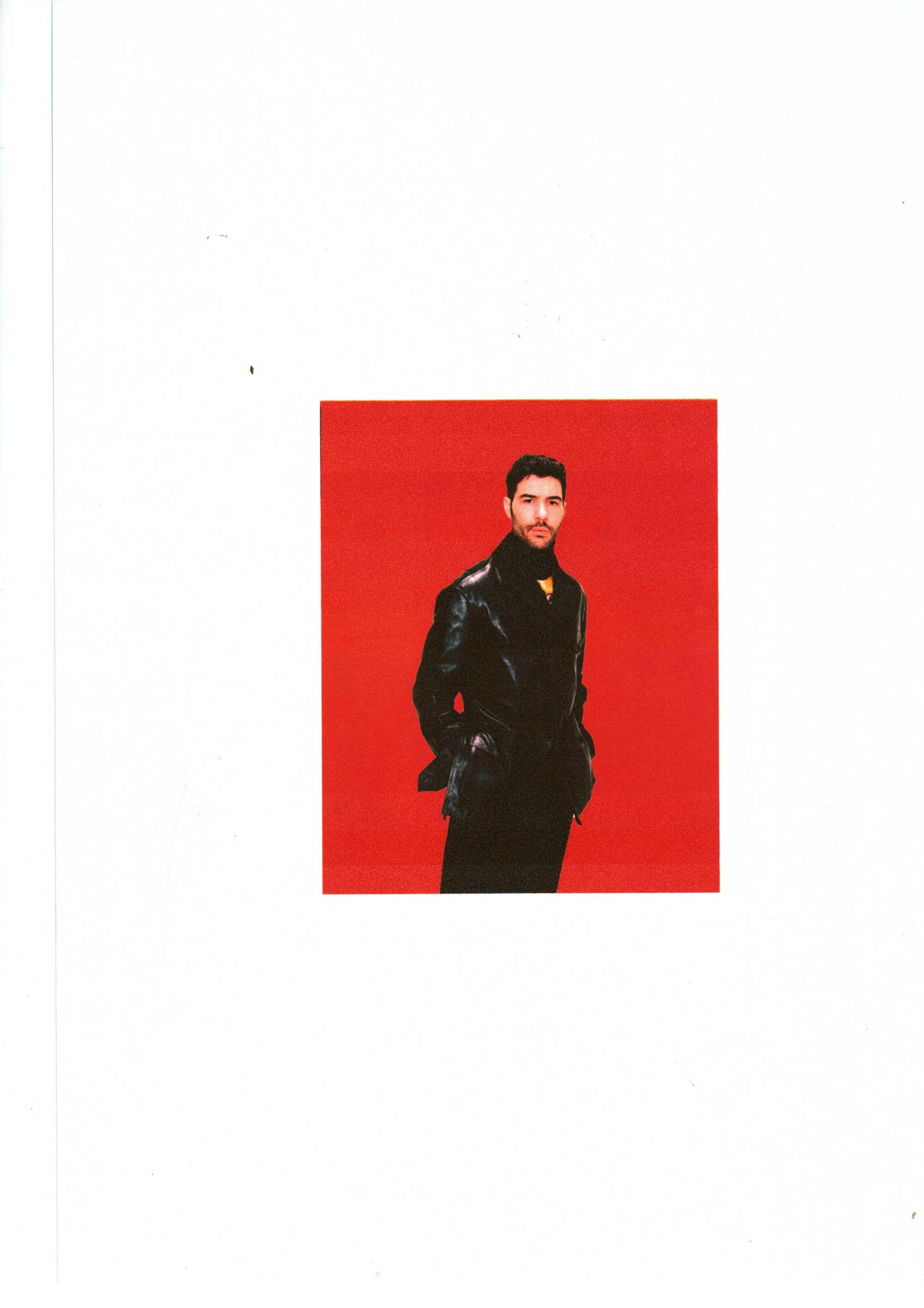 MULLIGAN: Oh my gosh. And then when he’s sitting there, singing along to the Bob Dylan song, he’s like the most carefree man in the world. How does he feel about the film now?
MULLIGAN: Oh my gosh. And then when he’s sitting there, singing along to the Bob Dylan song, he’s like the most carefree man in the world. How does he feel about the film now?
RAHIM: He’s very happy. I was scared for him to see it, because if there’s one person that I want to please, it’s him. He hopes the movie will help to one day close Guantanamo.
MULLIGAN: I have to ask about Jodie Foster because she’s one of my favorite actors on the planet. What was it like working with her?
RAHIM: She’s the coolest. Everything she does is genuine. The way she uses her pen, the subtlety she has when she looks at you, or even takes off her jacket. We didn’t talk that much between the takes because I needed to really focus on my part, and I was a bit intimidated as well. But we had this sort of conversation without words. It’s all about trust. You say something with your eyes and she understands it.
MULLIGAN: When did you become fluent in English?
RAHIM: I’ve worked on it so much. When we met, I could barely speak it.
MULLIGAN: I was going to say. When we met at Telluride, I remember us talking through other people. We were all afraid of you because you were so cool and French. I can’t imagine acting in another language. Doing an American accent for me is enough.
RAHIM: I think I like it better in English.
MULLIGAN: Do you really? Why?
RAHIM: Because it’s not my mother tongue, so I can still discover the depth of words. When you speak a foreign language, your face moves differently, and your body follows. And it’s challenging, like, “Am I going to succeed or not?”
MULLIGAN: After A Prophet, you mostly stuck to European films, and didn’t, for the most part, appear in American movies. Was that a choice?
RAHIM: I just wasn’t ready, to be honest. I couldn’t really speak English. For example, I couldn’t have done The Mauritanian four years ago. It takes so much to dig into those types of characters that you need to have more life experience. And I didn’t have enough at that time. I thought about why I like to work with foreign directors, and I think it comes from my childhood. I’m from a suburb where the kids were from all over the world. We would go to each other’s houses and discover each other’s cultures. I think it comes from there. In America, the offers I had at that time were stereotypical in the way they depicted Middle Eastern people. It’s not what you see when you travel, and movies should be, in a way, fair. I decided to wait untilI had good offers. Meaningful ones.
Grooming: Harold James at The Wall Group.
Production: Jocelyn Rummler
Photography Assistant: Martin Malnoe
Lighting Assistant: Pete Hawk
Grooming Assistant: Pierre-Arnaud Lesire


